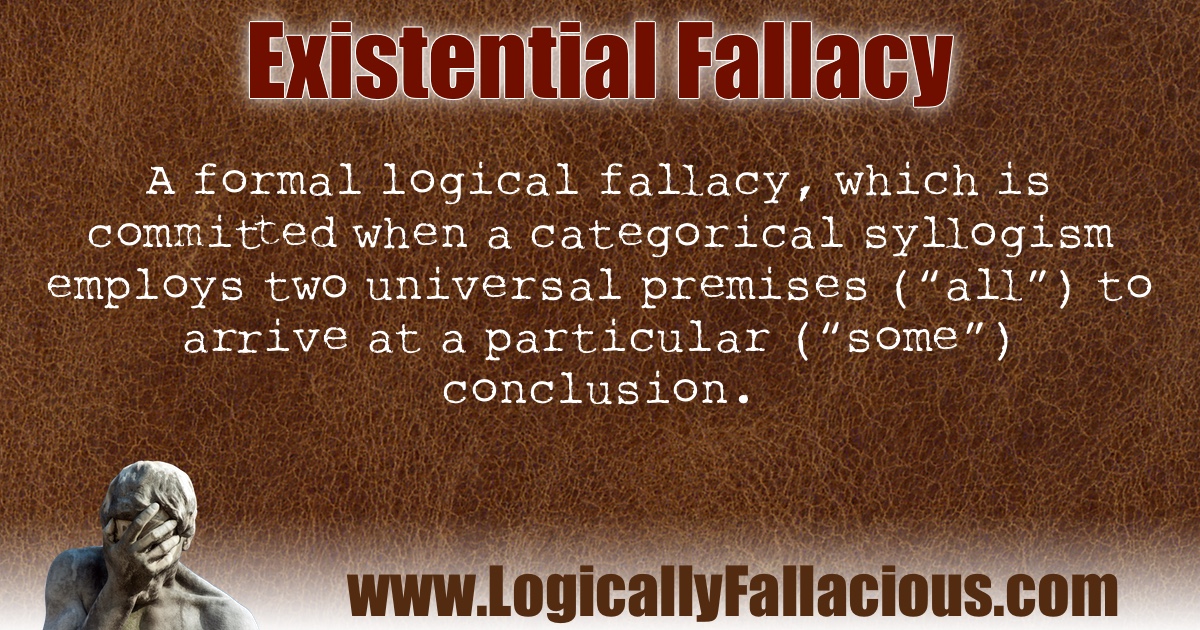(also known as: existential instantiation)
Description: A formal logical fallacy, which is committed when a categorical syllogism employs two universal premises (“all”) to arrive at a particular (“some”) conclusion.
In a valid categorical syllogism, if the two premises are universal, then the conclusion must be universal, as well.
The reasoning behind this fallacy becomes clear when you use classes without any members, and the conclusion states that there are members of this class -- which is wrong.
Logical Form:
All X are Y.
All Z are X.
Therefore, some Z are Y.
Example #1:
All babysitters have pimples.
All babysitter club members are babysitters.
Therefore, some babysitter club members have pimples.
Example #2:
All forest creatures live in the woods.
All leprechauns are forest creatures.
Therefore, some leprechauns live in the woods.
Explanation: In both examples, the fallacy is committed because we have two universal premises and a particular conclusion, but our example #1 conclusion makes sense, no? Just because the conclusion might be true, does not mean the logic used to produce it, was valid. This is how tests like SAT’s and GRE’s screw us over and, technically, in the above example, all babysitter club members have pimples, not just some.
Now, look at the second example. Same form, but when we use classes that obviously (to most people) have no members (leprechauns), we can see that it results in a conclusion that is false.
Exception: There actually is an exception to this formal fallacy -- if we are strictly using Aristotelian logic, then it is permissible because apparently, Aristotle did not see a problem with presupposing that classes have members even when we are not explicitly told that they do.
Tip: When making a claim, be as precise as possible in the scope of the claim. Don’t just say “men are bastards,” say “some men are bastards,” or better yet, “12.62% of men are bastards.”
